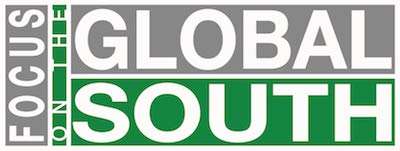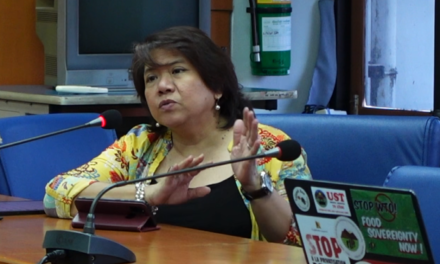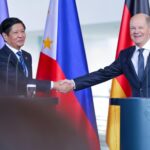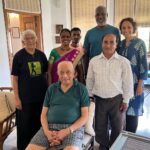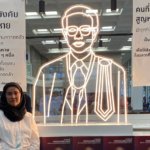http://www.dailystar.com.lb/article.asp?edition_id=1&categ_id=2&article_id=8531
BEIRUT: on Feb. 15, 2003, 10 to 15 million angry protesters marched the streets of the world's major cities. The next day, The New York Times wrote that there are “two super powers left in the world today, the U.S. and global civil society.”
Civil society is more than making its presence felt and “it is no longer a question of whether Washington will eventually be defeated by the Iraqi resistance, the question is how long it will hang on to an impossible situation,” according to Walden Bello, speaking at the “Where Next for the Anti-War and Anti-Globalization Movements?” three-day conference being held in Beirut.
The conference has gathered over 300 attendees in search of an international strategy – “or global plan of action” – to counter the spreading initiative of war and imperialistic, “U.S.-led globalization” and a reply to the continuous U.S. occupation of Iraq and its endorsement of aggressive projects in the Middle East region.
Intellectual gatherings, national Islamic political forces, human rights associations, peace activists, cultural forums, political parties, non-governmental organizations and delegations representing every continent on the planet gathered at Le Bristol Hotel in Hamra on Friday creating a multicultural hub of noise, cameras, laptops and telephones.
Some of the main figures attending the meeting included Abdel-Amir al-Rukaby, leader of the Iraqi delegation and an intellectual who, allegedly, was suggested as a member of an interim council before the Iraqi war, as an alternative to the U.S.-led war against Iraq and the Saddam Hussein regime, a retired admiral from the Indian Army turned peace activist, Ramu Ramdas, and Dr. Nahla Chahal, a Lebanese human rights activist from the International Civilian Campaign for the Protection of the Palestinian People.
The conference focused on three main issues: defining the international movement's situation, determining its strengths and weakness and drafting a final statement regarding the movement's course of action to be announced on Monday.
However, despite being held in Lebanon and apart from a few parties present to welcome the delegations, there was very little – if any – representation of the Lebanese political element.
According to participants at the conference, choosing Beirut as a venue resulted from several factors, but mainly due to “the Lebanese people's successful struggle against Israeli occupation and Lebanon's experience in resisting the United States' hegemony.”
The Lebanese welcoming committee included Hizbullah, The Lebanese Communist Party, The Socialist Party, Coordination of Domestic Association and Al-Leqaa Club.
According to Ali Fayyad, the director of the Consulting Center for Studies and Documentation, “this conference is being held in Lebanon; Lebanon, which has defeated the Reagan project for the Middle East in the 1980's; and Lebanon's resistance which has liberated the land from occupation.” However, delving deeper into the details of the conference, the main struggles and debates centered on the situations in Iraq and Palestine, with very little being said about the political upheaval in Lebanon and Syria, with regard to the Syrian-orchestrated parliamentary decision to extend the mandate of President Emile Lahoud and UN Security Council Resolution 1559, passed on Sept. 2 and opposing Syrian interference in Lebanese affairs. “There are great expectations around the world from this meeting and we are not here to listen to fancy words,” said Salim Vally, a member of the Anti-War Coalition of South Africa. Quoting Palestinian poet Mahmoud Darwish, Vally said: “Here on the slopes of the hills, facing the dusk and canon of time, close to the gardens of broken shadows – we cultivate hope.” Indeed the Iraqi and Palestinian delegations present appeared full of hope and were impatient to vent some long-held helplessness and find feasible campaigns to counter what many at the conference referred to as the “U.S.-Israeli axis.” On Saturday, Rukaby cut a charismatic leader at the podium, as he told the audience that, as a movement, they had failed since the last meeting. “Last year, we were called a superpower by one of the world's leading newspapers. Today, the Iraqi resistance stands alone in the face of the invading forces and this movement has failed to be beside the Iraqis in this struggle.” And as the members gathered into a quasi-round table meeting, the main points for the action plans for the Iraqi and Palestinian situations began to take shape. The Palestinian delegation requested an anti-Israeli apartheid-wall movement, an international hearing against Israeli Premier Ariel Sharon and a march against the atrocities committed against the Palestinians. As for the Iraqis, “we need a counterconference of intellectuals and activists inside Iraq,” said Rukaby. “We need a committee of lawyers to defend the women and children in U.S. captivity and we need a statement giving the Iraqi resistance the right to defend the land from any occupying forces, in any way.” But the last comment drew a cacophony of protests as the issue of hostage-taking arose. Admiral Ramu Ramdas, a soft-spoken Indian, said: “The war in Iraq was such an unnecessary war, a very illegal war. No one authorized it and whatever system was present, it was the Iraqi people's system.” “Mahatma Gandhi used to say that 'three-quarters of the world's problems would be solved if only you could put yourself in the shoes of your adversary,'” he added. “The Iraqis do have a right to defend themselves. However, while taking hostages and prisoners of war is fine, killing the innocent and beheading them is not.”
Also See:
Beirut 2004: A Milestone in the
Global Struggle against Injustice and War
